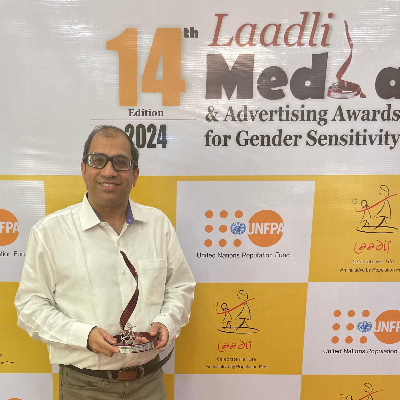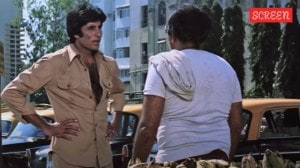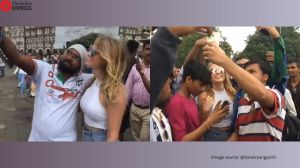‘Day when Malaysian crowd went silent’: 50 years on, Hockey World Cup star Harcharan reflects on historic feat
Days prior to the final, India were trailing hosts Malaysia 2-1 before substitute Aslam Sher Khan scored the all important equaliser in the 63rd minute to restore India’s hopes in the semi-finals.
 Brig. Harcharan Singh Hero of Hockey world cup 1975 with K. Arumugam
during launch ceremony of the book 'March of Glory' The story of
India's 1975 world cup Hockey Triumph written by Errol D'cruz and K.
Arumugam at Chandigarh Press Club in Sector 27 on Thursday. (Express
Photo by Kamleshwar Singh)
Brig. Harcharan Singh Hero of Hockey world cup 1975 with K. Arumugam
during launch ceremony of the book 'March of Glory' The story of
India's 1975 world cup Hockey Triumph written by Errol D'cruz and K.
Arumugam at Chandigarh Press Club in Sector 27 on Thursday. (Express
Photo by Kamleshwar Singh)“The number 15 has played a huge part in my life. I was born on January 15, 1950. It also happens to be Army Day. I was first chosen for the Punjab team on March 15, 1969. My wife Dilraj Kaur’s birthday is on January 15. And above all, March 15, 1975 happens to be the day when the Indian hockey team won the 1975 Hockey World Cup in Malaysia,” recounted Brigadier Harcharan Singh (retired) and left-winger of the 1975 Hockey World Cup winning Indian team as he spoke about the importance of number 15 in his life.
With India’s only hockey World Cup title coming 50 years ago on March 15, 1975, Singh was felicitated along with ten other living members and families of the five deceased members of the team in a Hockey India function in New Delhi on March 15 earlier this week and the former Indian player was in Chandigarh for the launch of the book ‘March of Glory’ authored by Errol D’Cruz and K Arumugam, commemorating the 50 years of the historic win.
The Ajitpal Singh-led Indian team had scored a 2-1 win over arch rivals Pakistan in the final of the World Cup at Merdeka Stadium in Kuala Lumpur in Malaysia. Days prior to the final, India were trailing hosts Malaysia 2-1 before substitute Aslam Sher Khan scored the all important equaliser in the 63rd minute to restore India’s hopes in the semi-finals. Harcharan Singh then scored the winning goal for India in the extra time, guiding the Indian team to the final.
“A lot of people say the decision to substitute Michael Kindo was an instant decision. But that was not the case. The core group including manager Balbir Singh Senior, coach G S Bodhi captain Ajitpal Singh, Surjit Singh, Ashok Kumar and me, had decided that if anybody was to be substituted, it would be Kindo. Sher Khan gave us a new life and at the end of regulation time, we had only belief to win the match. When I scored the winning goal, the Malaysian crowd became silent and all of us only thought about not returning home without the World Cup trophy,” remember Singh.
India had suffered their only loss against Argentina in the tournament and had scored wins over England, Ghana and then Olympic champions West Germany and a draw against Australia in the group stage and later won against hosts Malaysia in the semi-final to set up the final clash against Pakistan. India had earlier lost in the 1971 World Cup semi-final, 1972 Olympics semi-final and 1974 Asian Games final against Pakistan and Singh remembers that a Sikh lady came to bless the team outside the dressing room minutes ahead of the final.
“The whole tournament, all of us would sing patriotic songs like ‘Mera rang de basanti chola’ sung by Sardar Bhagat Singh once to motivate ourselves in the team bus from the team hotel to the stadium. Prior to the final, an elderly lady came to meet the team and told us that ‘Veero, guru di laj rakhni hai aaj (Brothers, you have to keep the honour of Guru)’. And by Guru’s grace, we won the World Cup. Coach G S Bodhi would tell the media ‘Mere bacho ne meri laj rakh li (My kids have saved my prestige)’. Every one of us played a part in the win,” said Singh.
Prior to the World Cup, the Indian team had a preparatory camp organised by the Punjab government at the Panjab University grounds under manager Balbir Singh (Senior). Three-time Olympic gold medallist and Indian captain in 1956 Olympics, Balbir Singh Senior had lost his father during the camp and his wife Sushil suffered a brain hemorrhage and was in coma for the rest of the duration of the Indian camp.
“Each one of us was put at hostel number 5 in Panjab University and every weekend, a crowd of more than 5,000 would watch us practice. Balbir sirlost his father while the camp was underway and his wife suffered brain haemorrhage and went into a coma. Yet Sardar ji (The whole team used to call Balbir that) only thought about us and making India win the World Cup. All those days, he would sit in a tent outside the hostel and would return to his room only when each member of the team was back in the hostel at the end of the day. He was strict but in a supportive way and it was his and Bodhi sir’s sheer dedication that led us to the title,” recalled Singh, who was previously a member of the 1971 World Cup third-placed and 1973 World Cup runner-up teams.
He also remembered how the team was accorded the welcome in India.
“The team landed in Chennai and that night, the customs did not clear our departure from the Chennai airport with the penalty in excess of Rs 60,000 for the items and gifts the team had brought from Malaysia. The then IHF president M A Ramaswamy cleared the penalty. Later, there were receptions across India including one with President Fakhruddin Ali Ahmed and then Prime Minister Indira Gandhi.”
“Everywhere we went, we were given cash by the general public out of love for the team and we would save every rupee no matter how small the amount it would be to respect the respect of the fans. The team also played an exhibition match against personalities like Raj Kapoor, Vinod Khanna, Rekha, Praveen Babi and other stars from Bollywood,” said Singh.












